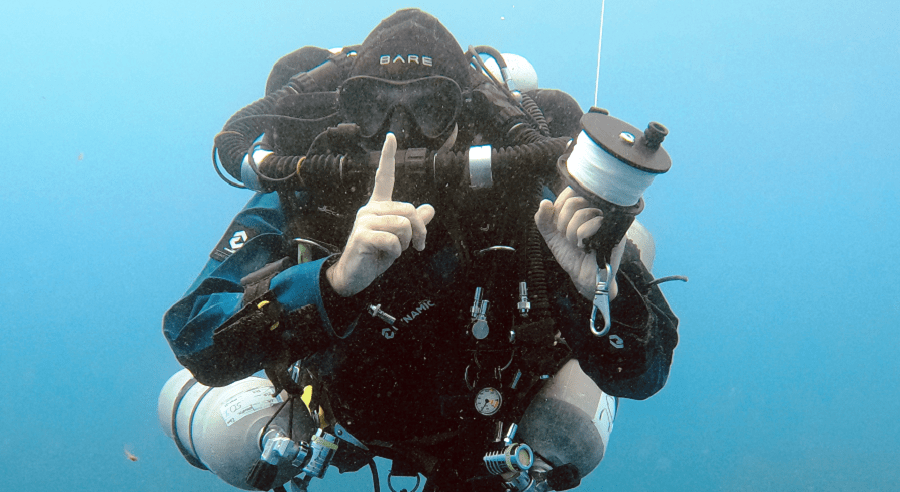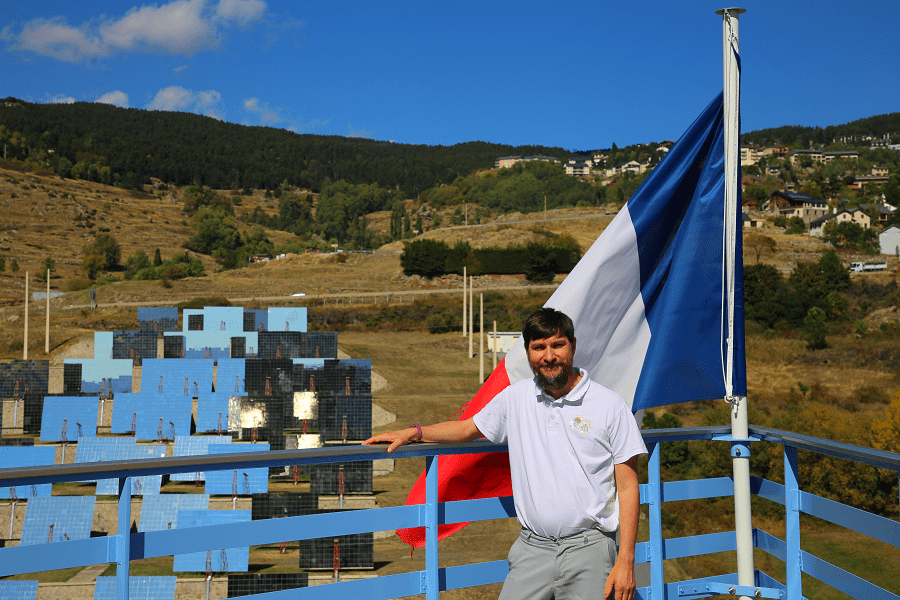
Corresponding Member of the Russian Academy of Sciences Olga Valerievna Shamova is one of the leading experts in Russia and the world in the study of human and animal antibacterial peptides.
These are antibiotics that always work in our bodies. Molecules are being synthesized on their basis now, they are prototypes of a new type of antibiotics, fundamentally different from the currently existing ones. They are peptides that protect against microorganisms that enter the body. They penetrate bacteria cells and kill them, that is, they work like bullets against any microorganisms. People or animals are not viable without them.
Tell us about research directions. What role do these peptides play in the human immune system?
We are engaged in the study of natural molecules that protect the body from infections. These are antimicrobial peptides of inborn immunity. One of the main cells of the inborn immune system are microphages, which contain the peptides we are studying. In addition, peptides are present also in many other cells involved in protection against infectious agents that are various barrier epithelium – skin, digestive mucosae, urinary tract, etc. Peptides exhibit high antimicrobial activity, including protection against bacteria resistant to antibiotics used in medicine.
Many peptides have other protective properties in addition to antibacterial activity that as antiviral, antimycotic, wound healing, immunomodulatory, antitumor, stress-protective activity.
How can these molecules exhibit such a wide range of properties?
The fact is that antimicrobial peptides have a variety of structures; the protective cells of each animal species have their own set of peptides that differ in biological properties. Several structural classes of peptides have been described, each of which is characterized by its antimicrobial activity mechanism and particularities on mammalian cells, including the adaptive immune system cells.
Most peptides can realize their antimicrobial action very quickly within a few minutes, as they bind immediately to bacterial cells and damage their membranes, the microorganisms’ resistance development to these natural molecules is difficult due to such a rapid action of peptides on bacteria.
Therefore, antimicrobial peptides of inborn immunity are considered very attractive substances based on which it is possible to create new drugs to combat antibiotic-resistant bacteria. In addition, both wound healing and immunomodulatory effects of peptides are promising from the practical application point of view.
But, the most active peptides against microbes unfortunately often have undesirable properties, they can damage normal body cells also. Therefore, the many scientific laboratories tasks include the development of modified peptide molecules to obtain compounds with high antimicrobial activity, but safe for human cells.
The problem of increasing bacterial resistance to antibiotics is becoming more and more urgent. In this regard, what are the ways of research progress on antibacterial peptides?
Indeed, attempts are being made to create more and more new drugs, but bacteria often win this competition. The antibiotic resistance problem is especially serious for people with weakened immune systems undergoing treatment in hospitals. Therefore, the development of the new antibiotics based on natural antimicrobial peptides is a promising direction in the light of the search for effective means of combating antibiotic-resistant bacteria, and these peptides have increasingly attracted the attention of scientists as prototypes of future antibiotics in recent years. I want to say a few words about our research.
We have created several peptides that show high activity against multi-resistant bacteria, in particular against those that are part of the so-called ESCAPE group, there are several bacteria types, the fight against which is one of the medicine priorities. If at the first stages of the peptides study of the inborn immunity system we had to spend many months isolating them from animal cells in sufficient quantities, we have a peptide synthesizer now that allows us to obtain quickly synthetic substances analogous to natural peptides or compounds designed by us.
We use our peptides in conjunction with traditional antibiotics to enhance their effect. The combined action of peptides and antibiotics increases in some cases their antimicrobial effects many times over, even if bacteria are resistant to these antibiotics.
Another direction of our work is the search for peptides with antitumor properties. There are peptides among the natural molecules we study that damage tumor cells, including those resistant to antitumor antibiotics (for example, protegrins). Of course, peptides do not act equally effective against all types of tumor cells, there are more sensitive cells, there are more resistant ones also. At the same time, although normal non-transformed cells are less susceptible to the peptides’ action than tumor cells, the task remains to create synthetic peptides whose action is directed to malignant cells only, we introduce into the studied peptides structure areas that recognize molecules characteristic of the tumor cells surface. This work is in progress. Data on some peptides’ effectiveness in experimental models of tumor growth in animals have been obtained. We researched peptides that can enhance the effect of anticancer drugs.
Another group of peptides that we are studying is substances that are non-toxic to cells but stimulate the wound healing process. These are modifications of the bactenecin peptides family. It has been shown that such peptides use has a positive effect on the skin wound healing dynamics in mice. Some peptides (defensins, lactoferrin) exhibit stress-protective properties, they help reduce the stress negative effects in experimental animals. We are investigating the mechanisms of these peptide effects.
One of the research areas is the creation of peptide complexes with nanoparticles of various nature. We are collaborating with employees of the Institute of Silicate Chemistry named after Grebenshchikov of RAS, they are from the scientific group of Doctor of Chemical Sciences O.Yu. Golubeva, where innovative nanomaterials are created, these materials are conjugated with antimicrobial peptides, we test the antimicrobial activity of the obtained drugs then. The antibacterial activity of the studied peptides as part of nanocomplexes increased, undesirable effects (some of their toxicity to human cells) decreased in some cases. In addition, the properties of nanoparticles were studied in the course of the joint work, which can serve as nanocontainers for transporting peptides to the site and prolonging their action.
Thus, our work includes several research areas into the biological activity of natural inborn immunity peptides and their synthetic analogs. Basically, the research objects are substances that were discovered with our direct participation. We hope to obtain new antimicrobial, antitumor, or immunomodulatory drug prototypes based on them.
You started working with antimicrobial peptides over 30 years ago. What is the history of the research area?
Prof. Vladimir Nikolayevich Kokryakov, who is one of the pioneers of this research in Russia, initiated research in the field of antimicrobial peptides in our department. Such scientists as Academician I.P. Ashmarin, Professor V.E. Pigarevsky, Professor A.N. Mayansky, and others were at this research origins. The first steps in the study of phagocytes’ antimicrobial factors were made in the works of I.I. Mechnikov. Returning to our research, I can say that their successful development was facilitated largely by cooperation with the laboratory of Professor Robert Lehrer from the University of California, Los Angeles, in cooperation with whom in 1993 we discovered new antimicrobial peptides – protegrins, which are among the peptides most active against a wide range of microorganisms. Inborn immunity peptides were studied in a few research teams only in our country at that time, mainly this area was developed abroad.
However, if we talk about the history of peptide antibiotics discovery in general then here Russian scientists made an invaluable contribution at the dawn of these studies because one of the most famous antibiotic peptides gramicidin C was first obtained in our country by the Institute of Malaria and Medical Parasitology employees G.F. Gause and M.G. Brazhnikova in 1942. This microbial origin peptide saved the lives of thousands of people during the Great Patriotic War. Research on peptide antibiotics, including peptides of the inborn immune system, is being actively conducted in Russia currently with the participation of specialists in the field of biology, chemistry, fundamental, and clinical medicine from St. Petersburg, Moscow, and other cities. We are making our best to work in cooperation with domestic and foreign scientists. In particular, we have been working long in close cooperation with the scientific team headed by Professor T.V. Ovchinnikova from the Moscow Institute of Bioorganic Chemistry of RAS named after academicians M.M. Shemyakin and Yu.A. Ovchinnikov.
We have discovered more than 20 new antimicrobial peptides in these many years of work in cooperation with domestic and foreign scientists. It has been established that most peptides exhibit high antimicrobial activity, although these peptides’ action mechanisms are different. Some have potent antitumor activity. Others have immunomodulatory properties. Some peptides promote wound healing.
Our main research objects are bactenecins and protegrins now. We are developing new compounds based on their structures that could serve as drug prototypes. Many of the peptides we have created have high activity against bacteria resistant to several classes of antibiotics.
Interview: Ivan Stepanyan










